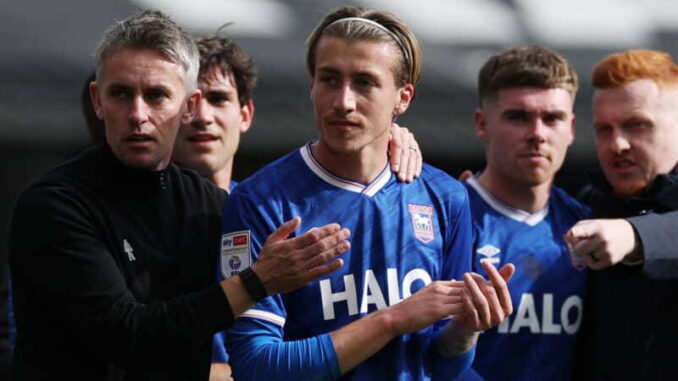
For Ipswich Town boss Kieran McKenna, life in the Championship—or potentially the Premier League chase—has been full of tactical puzzles, but few as pleasing as this one. The Suffolk side’s rise under McKenna has been built on competition, consistency, and cohesion, and now, with two in-form players pushing for one crucial spot, the manager faces what can only be described as a welcome dilemma.
The modern Ipswich team under McKenna is dynamic, adaptable, and reliant on positional flexibility. Whether in attack or midfield, the manager has created a structure where everyone knows their role but must constantly fight to keep it. The latest selection headache arises from two players—both deserving of a starting berth—vying for a position that could define the rhythm and balance of the side heading into a critical run of fixtures.
On one hand stands the tried-and-tested performer, a player whose consistency and work rate have been key to Ipswich’s recent success. His tactical intelligence, ability to link play, and defensive reliability make him a coach’s dream. McKenna has leaned on his experience countless times in big moments, trusting his discipline to execute game plans to perfection. But football, especially in the McKenna era, rewards current form as much as loyalty.
Enter the challenger: younger, energetic, and brimming with confidence after a series of impressive cameos. This player’s technical flair and creativity bring something different—a spark that can unbalance defences and shift momentum in tight matches. While he might lack the veteran’s positional maturity, he compensates with fearless attacking intent and the ability to produce a moment of brilliance from nothing.
It’s a situation that mirrors what top teams encounter when success breeds depth. McKenna’s Ipswich have reached that stage. The squad is no longer about filling gaps—it’s about fine-tuning the right balance between control and chaos, safety and risk, experience and youth.
From a tactical perspective, the decision may depend on the opponent. Against teams that sit deep and deny space, the more creative option might be favoured to break lines and inject tempo. Against stronger, possession-based sides, the manager might revert to his reliable lieutenant to maintain defensive structure and transitional stability. McKenna’s flexibility in alternating between the two shows not confusion, but evolution.
There’s also the psychological dimension. Healthy competition pushes standards higher. Both players know that every training session, every substitution appearance, and every tactical drill could influence the next team sheet. That pressure—when managed correctly—creates sharper focus and collective hunger. For a young, ambitious team like Ipswich, this competitive environment is precisely what sustains momentum through long, gruelling campaigns.
In truth, McKenna’s “headache” is the kind every manager dreams of. It signals progress, depth, and belief in the system. It also reflects how far Ipswich have come under his watch. Two years ago, the club was striving for stability; now it’s managing luxury dilemmas that only top-performing sides encounter.
Whether he opts for the experience of the old guard or the vibrancy of the new star, McKenna knows his decision will spark debate—but he’s built a culture where whoever plays, the standard remains the same. That’s the real triumph.
Ipswich Town’s selection battles aren’t problems—they’re proof of promise. And as long as Kieran McKenna keeps fostering that internal competition, the Tractor Boys’ rise shows no signs of slowin
g.
Be the first to comment